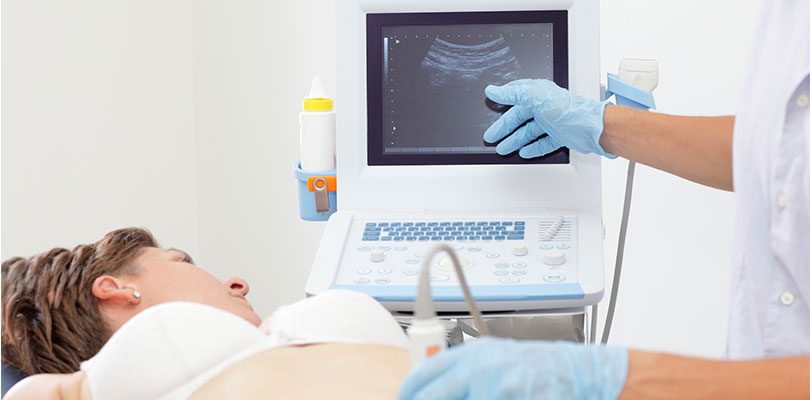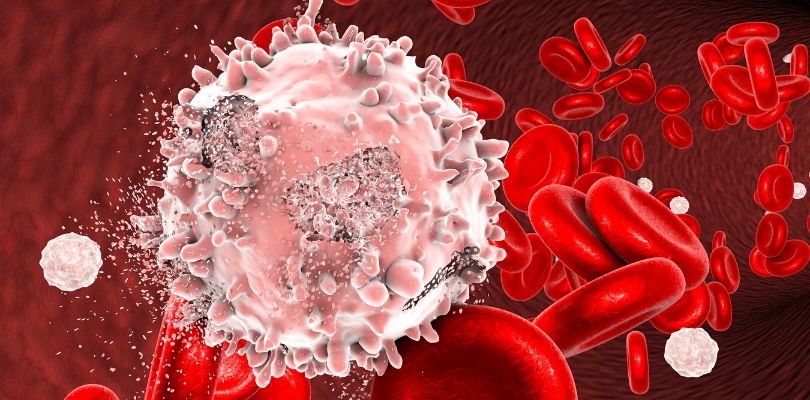Leukemia Symptoms
Leukemia is a type of cancer which affects the bone marrow and lymphatic system. Bone marrow is involved in the formation of blood, and leukemia results in the overproduction of abnormal white blood cells, which can flood the body and cause a variety of symptoms.
There are several different types of leukemia. Some of these tend to affect children, while others are more common in adults. The most common types of leukemia are:
- Acute lymphocytic leukemia
- Acute myeloid leukemia
- Chronic lymphocytic leukemia
- Chronic myeloid leukemia
These conditions are named depending on which type of cells are affected and how quickly the disease progresses. There are also other more unusual types of leukemia.
Although there are different types of leukemia, the symptoms of each variety are relatively similar. In this article, we discuss some of the key leukemia symptoms and why they occur.
Leukemia Symptoms
The symptoms of leukemia can be similar to those of many other conditions and they do not always show up straight away. In some cases, this means that leukemia is not diagnosed until the disease has already become quite advanced, making it much more challenging to treat.
By knowing how to recognize the following leukemia symptoms, you may help to save someone's life. Here is what to look out for:
Anemia
Anemia is a symptom of leukemia. It is caused by high numbers of cancerous white blood cells ‘crowding out' red blood cells and reducing the amount of oxygen that can be carried by the blood. You may be suffering from anemia if you experience the following signs and symptoms:
- Pale skin
- Feeling tired or fatigued
- Shortness of breath
Bruising and Bleeding Easily
The excessive numbers of white blood cells produced in leukemia can also reduce your platelet count. Platelets are the component of blood which is responsible for clotting, and when they are low, you may find that you bruise or bleed more easily than usual. This symptom can show itself in several different ways. These include:
- Unexplained nosebleeds
- Heavy periods in women
- Bruising easily
- Petechiae (flat, red or purple dots on the skin)
Cancer of the liver can move slowly and go undetected for quite a while.
Frequent Infections
White blood cells play an essential role in immunity. They are responsible for destroying microbes such as bacteria and viruses when they enter the body.
Although leukemia causes large numbers of white blood cells to be produced, they are abnormal and cannot function as they should. This means that people with leukemia may be prone to frequent, prolonged, or recurrent infections.
Swollen Lymph Nodes
Lymph nodes, also known as lymph glands, are another important part of the immune system and are responsible for storing white blood cells. They are located in the neck, underarms, and groins.
It is normal for the lymph nodes to become swollen and tender when you have an infection such as a cold or flu. However, in leukemia, the lymph nodes may remain swollen even if there is no infection present. Be sure to see your doctor if your lymph nodes:
- Stay swollen for several weeks
- Become more swollen over time
- Feel hard and painless to touch
- Are making it difficult to breathe
Abdominal Swelling
In addition to swollen lymph nodes, leukemia can cause the liver and spleen to become enlarged. These organs are normally tucked away under the rib cage, but when they are filled with a build-up of damaged white blood cells, they can be felt under the skin. Also, you may experience other, related leukemia symptoms such as abdominal discomfort and/or feeling full after eating only small amounts.
Weight Loss
Leukemia can cause a loss of appetite and reduced calorie intake due to abdominal discomfort after eating. Over time, this can lead to dramatic weight loss.
Unplanned weight loss can be a symptom of many different types of cancer, not just leukemia. Sudden weight loss should be investigated by a doctor.
Excessive Sweating
Leukemia can also cause symptoms such as fever, chills and excessive sweating. Night sweats are a particularly common leukemia symptom, although they can also be a sign of other conditions such as menopause or diabetes.
If you wake up with your sheets soaked through despite your bedroom being a comfortable temperature, ask your physician to run some tests.
Bone and Joint Pain
Leukemia starts in the bone marrow, and it's no surprise that its symptoms include bone pain. As the build-up of white blood cells increases pressure in the bones, you may experience sharp or dull pain depending on its location. If cancerous cells build up in the joints, these can become painful too.
In Conclusion
As with all types of cancer, early detection of leukemia significantly improves your chances of survival. If you are experiencing any of the above leukemia symptoms, make an appointment with your physician to discuss them.
It may be nothing serious, but if you do have leukemia, you need to know as soon as possible to ensure the best outcome.







